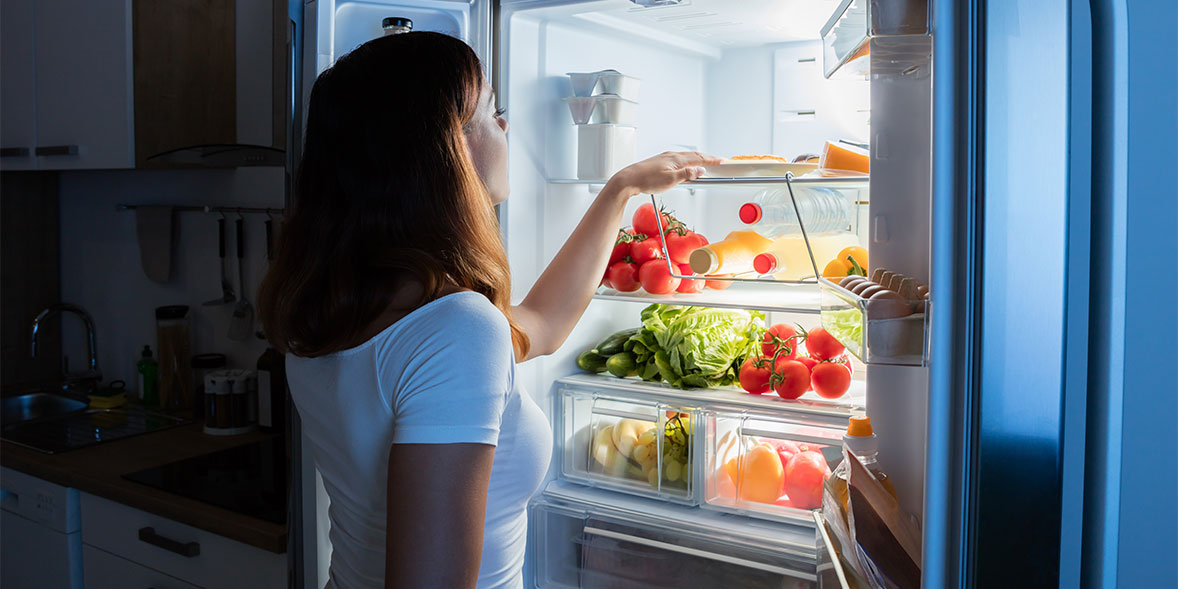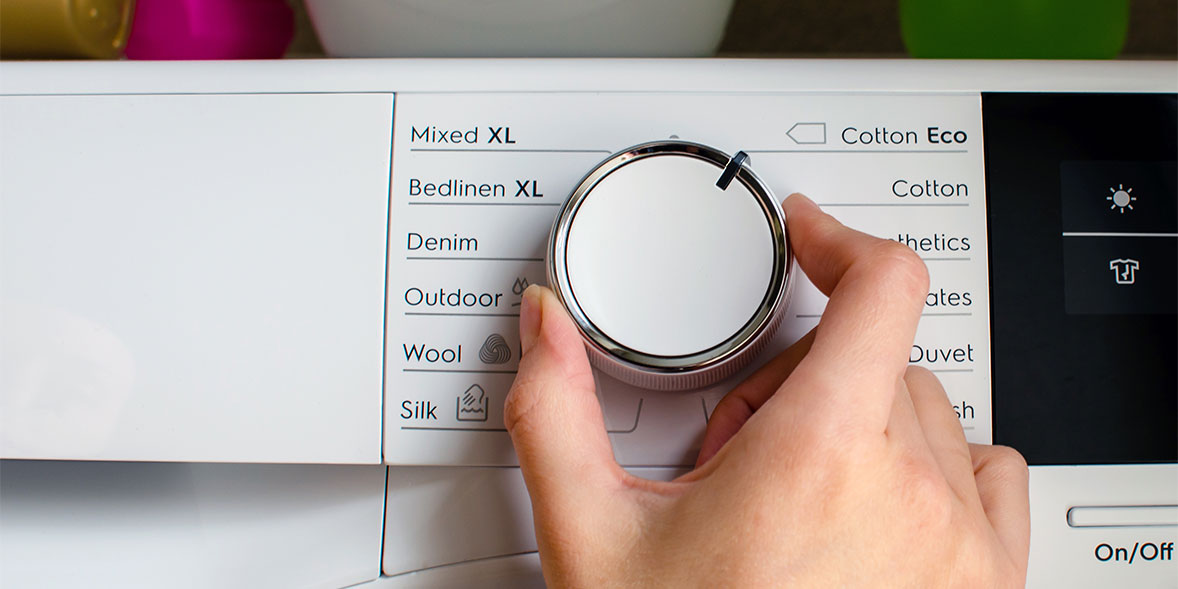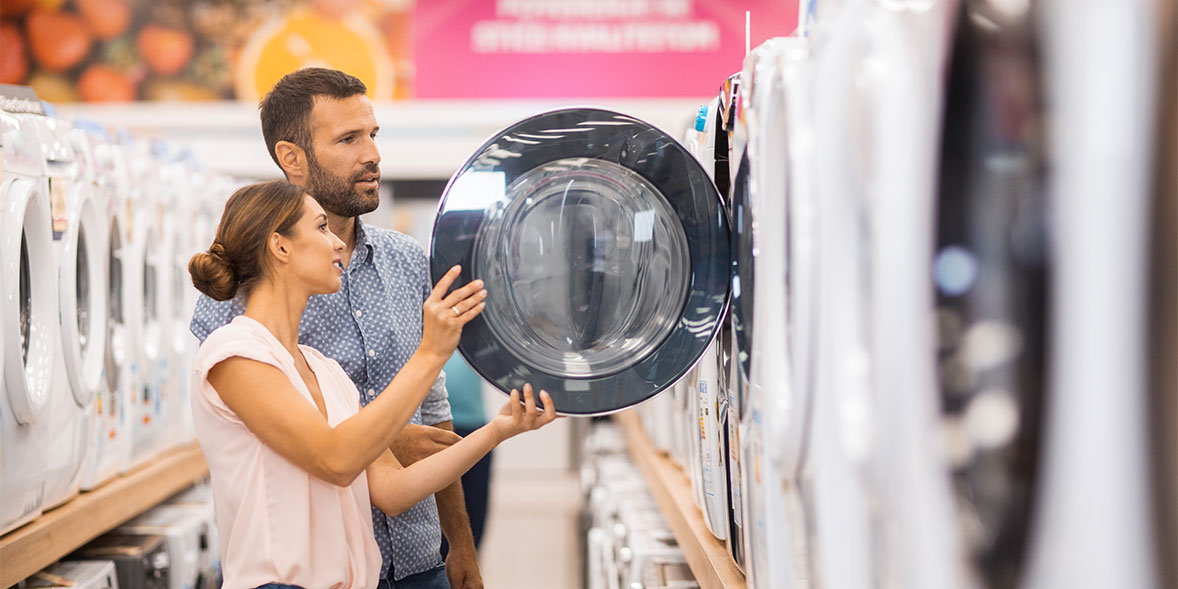We've collected energy use data for the most common household appliances, including fridge freezers, ovens and laundry appliances, so you can find out how much each of them costs to run.
You'll find all our average energy use data below, along with links to our free running costs tools so you can check how much energy your specific model is using.
Read on to find out which appliances use the most energy and get hints and tips on how you can reduce the amount you spend on using them each month.
We last updated our figures in May 2023 using the new average electricity unit rate of 30p per kWh, which will apply from 1 July 2023 for people paying by direct debit.
Find out more on the latest figures: - get our free sustainability newsletter to make changes for you and the planet.The most expensive large appliances to run

Based on our current testing data, the table below summarises the average annual running costs of each large appliance in your home.
Table notes:Prices from July 2023, based on the products live on our website at the time of publication. Running costs assume an electricity cost of 30p per kWh.Fridge freezer figure based on constant use. Remaining appliance figures based on estimated use.Our tests show that condenser tumble dryers are the most expensive appliances to run by quite a margin, costing on average £151 a year. This is more than twice the amount you can expect to spend if you're the owner of a heat pump model.
Heat pump dryers are far more energy-efficient, and will only cost you around £60 annually on average.
Coming in second place are American-style fridge freezers, which will set you back around £129 each year. Freestanding and integrated models tend to be smaller and because of this are significantly cheaper to run, costing £90 and £80 a year respectively. Fridge freezers need to be on 24/7 to keep your food fresh and safe to eat, so don't be tempted to turn them off to save energy.
In the bottom half of our table, the average built-in single electric oven costs £70 a year to run. Similarly, you can expect to spend an average of £71 annually on your washing machine.
We've also included the cheapest and most expensive to run appliances in this table to give you a sense of the range.
How much you can expect to spend will partly depend on the size of your appliance – a bigger appliance will generally cost more to run – and partly on efficiency. But don't assume that a smaller appliance will be the better choice from a money-saving perspective.
Our running cost tools include annual running costs data for all the specific products we've tested in our labs. So if you know which model you own, you can search for it in our tools and get accurate data on how much it'll cost you to run over the year.
Find out how much your appliances are costing you with our running cost tools:Electric cars now £86 cheaper to charge at home
Electric car owners who can charge from home will see their running costs drop by an average of 1.1p per mile, or £85.68 per year according to our tests.
Average savings vary per class of car and how efficient they are. We measure a car's efficiency in miles per kWh (mi/kWh).
*Based on 8,100 miles per year, the average annual consumer mileage from our latest Which? Car Survey.
How to save money on your energy bills

If you're looking to reduce the amount you spend on energy each month, there are a handful of ways you can tweak your appliance use to help.
Wash your clothes at a lower temperature Stack your dishwasher properly Dry your clothes on the line Tumble dry different fabrics separatelyWait for food to cool before freezing Keep appliances clean Read our guide on for some more handy hints and tips on cutting costs at home.Ultimately, though, there's a limit to what you can do as a consumer. At Which?, as well as giving you tips on reducing your energy use, we're also calling on the government and energy companies to do more for vulnerable consumers as the price of gas and electricity remain high.
Which? Energy editor Emily Seymour said: 'The news that the energy price cap will come down to £2,074 a year for the typical household from July is positive, but many will understandably be confused about what exactly this means for them and their monthly outgoings.
While the new price cap on variable tariff rates will see typical bills drop by around £500, energy bills will be almost double the amount they were before the energy crisis began and these prices will still be unaffordable for many households.'
Tips on buying energy-efficient appliances

Specific tips will vary depending on exactly the type of appliance you're planning on buying, but there are a few blanket rules to follow that will help you get your hands on the most eco-friendly option possible.
Firstly, make sure you buy an appropriately sized appliance for your needs. For example, if there's only two of you in your household there's no need to buy a large American-style fridge freezer. Instead, opt for something smaller that won't require as much energy to run. But, as we were saying before, smaller isn't always more economical. If you have a large family and buy too small a washing machine, you'll simply end up running it a lot more often, which works out more expensive long-term than buying a bigger model with capacity for larger loads.
Some types of appliances are inherently more energy-efficient than others too, such as heat pump tumble dryers. In some cases, these can be pricier to buy, but it's usually worth it in the long run as they'll pay for themselves over time.
A surefire way of knowing you've chosen one of the most eco-friendly options is to choose one of our Eco Buy products. These are appliances that not only score well in our performance tests, but will have the smallest environmental impact out of all the models we've tested in their category.
Products currently carry our Eco Buy recommendation in the following areas:
For more information on what makes an Eco Buy product, head to our story on .source https://www.which.co.uk/news/article/how-much-your-household-appliances-will-cost-to-run-from-july-2023-a6Dqv1M8Mgq7
